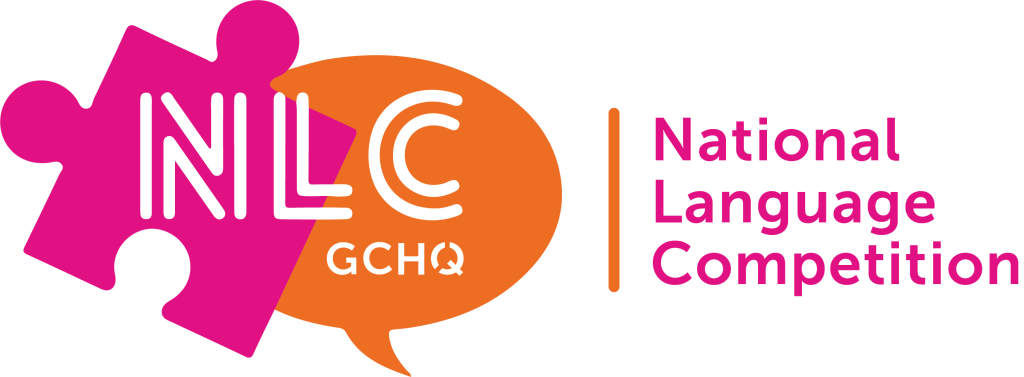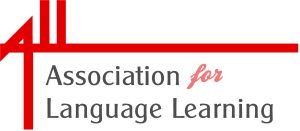National Consortium for Languages Education
IOE – Faculty of Education and Society

Spotlight on…
Support for Head Teachers
The aim of the NCLE is to re-energise language teaching and learning in state-maintained secondary and primary schools across England. We are committed to strengthening practice through system leadership in languages across England to improve the learning opportunities and outcomes for all pupils. Our actions are informed by the recommendations of the MFL Pedagogy Review 2016.
Recognising the important role headteachers, principals and senior leaders play in advocating for languages, we have pulled together insight and resources that will help you to support and inspire your language department.
Join the ASCL Conference for Strategic Leadership of Languages on 5 July in London. Aimed at headteachers and school leaders, the conference is designed to help you increase language participation and outcomes, access funded opportunities for languages, and establish a school culture where languages flourish.
How can the NCLE support you?
Our network of Language Hubs aims to increase the number of pupils studying a language at GCSE helping them to improve their attainment in languages. Find out where your local hub is based and encourage your language teachers to make contact and become part of their network.
Our new universal CPD eLearning platform will support language teachers to build their knowledge-competencies and skills through research-informed, evidence-based professional development. This digital learning space will be available from autumn 2024. In the meantime, teachers can join our taster webinars . Suggest to your language teachers that they join our mailing list to keep up-to-date
With one in every five of pupils already speaking a heritage language other than English, we are advocating for home, heritage and community languages. We can give you advice on how to strengthen links with your local community, support your pupils and boost your EBacc results. Read this guidance document.
The value of languages in education
It is well-recognised that languages play a central part in providing a rich, broad and balanced curriculum for all pupils, supporting social mobility and improving career outcome. Learning a language develops a range of transferable skills including cognitive and creative thinking, empathy and tolerance as well as cultural agility that supports the development of young people’s personal, social and cultural education. In addition, languages are transformational, opening the door to international travel and building friendships around the world.
As we recognise the full repertoire of our pupils’ languages spoken as home, heritage and community languages, we can empower young people and strengthen their aspirations and self-efficacy, whilst having a positive impact on social cohesion in the wider community.


How can you support language learning in your school?
If you don’t have a background in language teaching (or even if you do!), you might be wondering how to demonstrate your support for language learning in your school.
Here are some questions you might want to ask your Head of Languages. These are taken from a comprehensive list on pages 20-21 of the MFL Pedagogy Review.
- How certain are we that the highest achieving pupils are progressing well while those needing more support are not demotivated?
- How do you provide for the teaching of phonics in your Scheme of Learning? Is it appropriately planned and well-sequenced?
- Is the teaching of vocabulary appropriately planned and well-sequenced? How has the selection of vocabulary been decided? Is it informed by frequency of occurrence?
- How is the teaching of grammar planned and well-sequenced? How does assessment of grammar teaching inform corrective or remedial teaching or intervention? What core grammatical features will pupils have mastered by the end of each year?
- Do you provide opportunities for your learners to engage with stimulating, culturally rich content, developing knowledge of the culture, history and literature of the countries where the language is spoken?
- Are there ample opportunities for pupils to engage with ‘real’ speakers of the languages being taught? For example is this using visits, where possible, internet and virtual communication opportunities, or other opportunities such as foreign language assistants?
Further Resources
- Support language learning in your school by hosting a modern language assistant, encouraging partnerships with schools in a different country or planning a school exchange.
- If you’re looking to support German in your school, GIMAGINE offers exciting projects to motivate students, provides tangible resources and materials, and can provide teaching services to schools who face an HR shortage.
- For insight into the role and benefits of language learning, we recommend Cognitive benefits of language learning: broadening our perspectives by Professor Bencie Woll FBA and Professor Li Wei, published by the British Academy.


Focus on Home, Heritage and Community Languages
The National Consortium for Languages Education (NCLE) recognises the value and importance of all languages and the rich cultural heritage of all our learners, of their parents/carers and of the wider community. NCLE aims to promote and support greater access to accreditation through GCSE and other suitable qualifications for Home, Heritage and Community Languages (HHCL).
We aim to provide pedagogic advice for teachers on how to support pupils who speak additional languages to English at home to access GCSE in available languages and thereby strengthen overall uptake of languages at EBacc.
To deliver this requirement, the NCLE will work with stakeholders to build on established, successful school-led practices in recruiting and training assessors in a wider range of languages and set up a national network of assessment centres where pupils can enter GCSE in a range of home languages. Lead and partner schools will network systematically with supplementary schools in their communities, and act as or provide ready access to an examination centre for HHCL.
“Studying this language is not only intellectually stimulating and culturally enriching but also opens many future opportunities!”
Watch to find out more about how Polish can boost your academic and professional prospects.
Subject Knowledge Enhancement
Every teacher knows how important it is to keep their subject knowledge strong and up-to-date to be able to teach with confidence as they seek to foster and maintain learner interest and engagement. Indeed, Teacher Standard 3 requires teachers to, ‘Demonstrate good subject and curriculum knowledge’.
This is a particular challenge for Languages teachers who not only have to focus on both their linguistic and cultural skills in their lead language to feel secure in teaching it to GCSE and AL, but who also often have second and third languages in their repertoire in need of further refinement and refreshment. The first step is to complete a language skills audit to ascertain where the gaps are, before setting out a clear action plan – see Universal CPD for these.
Once you know what you need, then your search for support can begin! There are numerous self-study options for linguists but there are also many low-cost, often free options shared by our subject association and cultural partners. Our NCLE partner, the Goethe-Institut, has a wealth of support materials on offer for both teachers and learners. Similarly, the Institut Français and the Consejería de Educación have generous offers for everyone too.
Explore a summary of offers by the Institut Français

Institut Français
Email: education@institut-francais.org.uk
Website: Institut Français
Explore a summary of offers by the Consejería

Consejería de Educación
E-mail: info.uk@educacion.gob.es
Phone: +44 (0)20 7727 2462
Website: Consejería de Educacíon

GCHQ is one of the three UK Intelligence and Security Agencies, along with MI5 and the Secret Intelligence Service (MI6). GCHQ protects the UK and its citizens from individuals, groups and countries who wish to do us harm, or damage us financially. GCHQ intelligence keeps our deployed forces safe and helps law enforcement agencies to prevent terrorist activity and serious and organised crime.
GCHQ is running its third annual National Language Competition (NLC) in November 2024, with the aim of promoting language learning in schools and encouraging the uptake of languages at GCSE/N5. Given GCHQ’s statutory purpose to advise government and wider society on languages, the NLC falls under our remit to promote languages, and sits alongside our thriving language outreach programme to schools. The NLC aims to inspire language learning in schools across the UK (with a particular focus on schools in socio-diverse areas) by making languages fun, and to encourage language uptake at GCSE/N5.
When? Monday 18 November to Friday 22 November 2024
Who is this aimed at? Year 9 in England and Wales, Year 10 in Northern Ireland,
and S3 in Scotland – pre-GCSE and N5 options.
Where? Online from their classrooms (e.g. at lunchtime under teacher supervision) or
at home.
Why? To encourage a passion for language learning and highlight the many
transferrable skills learning a language can develop.
How? Register your interest here.
The Association for Language Learning
Digital Technology
There is no doubt that Languages teaching and learning can be enhanced by well-planned and purposeful use of the wide range of educational technology tools available to both teachers and learners. Learners are skilled users of digital technology, and multimodality can be a powerful motivational tool.
Not only can technology support teachers as they seek to find creative ways to reinforce classroom instruction to support practice and memorisation of vocabulary and other key linguistic features, but it also provides access to authentic materials and a range of native speaker voices. DT is also a tool to foster greater independence in language learning as learners are inspired to continue to explore language and culture outside of the classroom.
One of the key recommendations in the MFLPR 2016 states:
The content taught through the new language should be stimulating and widen pupils’ knowledge of the culture, history and literature of speakers of the new language…
DT offers support in achieving this.



